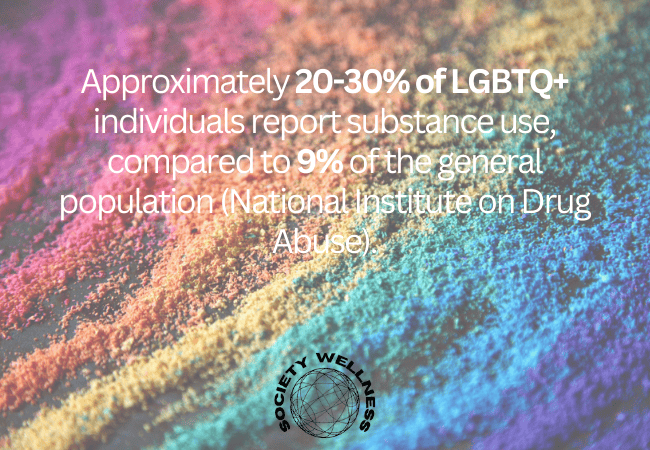Addiction recovery is a challenging journey, especially when balancing work, family life, and personal healing. For LGBTQ+ individuals, this process can be even more complex due to unique social, mental, and emotional challenges. Thankfully, programs like Intensive Outpatient Treatment and LGBTQ Day Treatment Programs are designed to help individuals in recovery maintain their responsibilities while receiving the care they need. This blog will explore how these treatment options support LGBTQ+ individuals in finding balance during their recovery journey.
What is Intensive Outpatient Treatment (IOP)?
Intensive Outpatient Treatment (IOP) is a structured treatment program that allows individuals to receive comprehensive care without the need to stay overnight in a facility. This flexible approach makes it ideal for those who want to maintain their work, family, and social obligations while prioritizing their recovery. Participants typically attend therapy sessions several times a week, often during the day or evening, and return home afterward.
For LGBTQ+ individuals, IOP offers a supportive environment that respects their unique identity and experiences. LGBTQ+ Addiction Centers are particularly attuned to the needs of this community, providing care that is both affirming and individualized.
How Intensive Outpatient Treatment Supports Work and Family Life
Balancing a job, family commitments, and personal recovery can be overwhelming. That’s where Intensive Outpatient Treatment comes in. It allows individuals to maintain their daily life responsibilities while still benefiting from structured therapeutic support. Here’s how IOP helps:
- Flexibility: IOP programs often offer evening or weekend sessions, making it easier for LGBTQ+ individuals to attend treatment without taking extended time off from work or family life.
- Personalized Care: IOP provides individualized care that addresses both addiction and mental health issues, such as trauma, depression, and anxiety, which are often experienced by LGBTQ+ individuals.
- Supportive Environment: The LGBTQ+ community often faces unique struggles, such as discrimination, stigma, and identity-related challenges. LGBTQ Addiction Treatment Programs offer specialized care that takes these issues into account, creating a space where individuals can feel supported and understood.
- Integration with Family and Work Life: Many IOP programs incorporate family therapy or offer educational sessions that help loved ones understand addiction and recovery, which fosters a supportive home environment. In addition, managing recovery while maintaining work responsibilities can help prevent stress and burnout.
The Role of LGBTQ Day Treatment Programs
LGBTQ Day Treatment Programs are specifically tailored to meet the needs of LGBTQ+ individuals who may be seeking a more intensive level of care than IOP but who still wish to maintain certain responsibilities. These programs typically provide more structured treatment throughout the day, with participants attending therapy during business hours and returning home in the evening.
For LGBTQ+ individuals facing addiction, LGBTQ Day Treatment Programs offer a unique opportunity to focus on recovery while being immersed in a community that shares similar experiences. Participants can connect with others who understand the intersectionality of their identity, providing an added layer of emotional support.
How LGBTQ Addiction Treatment Programs Help Achieve Balance
The goal of an LGBTQ Addiction Treatment Program is not just sobriety but a holistic approach to recovery. These programs take into consideration the challenges that LGBTQ+ individuals face, such as mental health issues, trauma, and societal stigma, which can all impact recovery. Here’s how these programs contribute to balancing work, family, and personal recovery:
- Comprehensive Care: These programs provide treatment for substance use and co-occurring mental health disorders, addressing both the addiction and its underlying causes.
- Safe and Affirming Environment: LGBTQ+ Addiction Centers in Massachusetts and across the country create safe spaces where individuals can express themselves openly without fear of discrimination or bias.
- Community Support: Connecting with other LGBTQ+ individuals in recovery provides a sense of solidarity and shared experience. This peer support can be invaluable, especially when managing the pressures of daily life.
IOPs vs. Traditional Rehab Programs: Understanding the Difference
When considering addiction treatment options, it’s essential to understand the difference between Intensive Outpatient Programs and traditional inpatient rehab programs. While both aim to support recovery, they differ in structure and the level of commitment required. Traditional rehab typically requires individuals to reside at a treatment facility full-time, focusing on providing intensive care in a controlled, residential environment. This option can be ideal for those who need 24/7 supervision and support due to the severity of their addiction.
In contrast, IOPs offer more flexibility, allowing individuals to live at home and attend therapy sessions several times a week. This makes IOPs a better fit for those who need a balance between their recovery and personal responsibilities, such as work or family commitments. For LGBTQ+ individuals, IOPs also provide an environment where their unique needs and experiences can be addressed, offering a level of care that is both structured and responsive to individual circumstances.
Combining Family Responsibilities and IOPs: A Practical Approach
One of the significant challenges in recovery is balancing family responsibilities while attending an addiction treatment program. Intensive Outpatient Programs (IOPs) are ideal for individuals who need to maintain family obligations without sacrificing their recovery. Unlike traditional inpatient rehab, which removes you from your home environment, IOPs offer the flexibility to return to family life each evening.
For LGBTQ+ individuals, this flexibility allows them to continue being present for their loved ones while also benefiting from crucial therapeutic support. Additionally, LGBTQ Day Treatment Programs often incorporate family therapy, allowing family members to become active participants in the recovery process, enhancing understanding and support for the individual’s journey.
The Role of Support Systems in IOPs: Why They Matter
Support systems are a critical component of any addiction recovery plan, but they become even more essential when balancing recovery with daily life. Intensive Outpatient Programs (IOPs) encourage individuals to build a robust support network outside of treatment. Whether it’s a sponsor, therapist, or group therapy peers, having a reliable support system can make all the difference in maintaining progress.
For LGBTQ+ individuals, support from people who understand their experiences, such as others in LGBTQ Addiction Treatment Programs, offers an additional layer of comfort and strength. Peer groups within IOPs can help reduce feelings of isolation, promote accountability, and offer the emotional support needed during challenging moments in recovery.
Role of Family Support in IOPs: Strengthening the Recovery Process
Family support is vital in any addiction treatment program, especially in Intensive Outpatient Treatment (IOP). For many individuals, especially those balancing home and work life, having loved ones who understand and support their recovery efforts can be a game-changer. Family therapy, often integrated into LGBTQ Addiction Programs, helps loved ones learn how to offer emotional support and provide healthier communication strategies.
Family members who attend LGBTQ Day Treatment Programs or family-oriented sessions within IOPs also gain insight into the recovery process, which can foster understanding and compassion, reducing stigma and enabling long-term success.
Choosing the Right Treatment Program: IOP vs. Day Treatment
Deciding between Intensive Outpatient Treatment (IOP) and LGBTQ Day Treatment Programs largely depends on the severity of the addiction and the level of support needed. Here are some factors to consider:
- Intensity of Care: If you need more structured treatment during the day but still want to be home in the evenings, a day treatment program may be ideal. If your addiction is less severe and you can maintain your work and family commitments while attending regular therapy, IOP might be a better fit.
- Support Needs: If you’re struggling with co-occurring mental health disorders or trauma, day treatment programs may offer more intensive care, while IOP focuses on balancing treatment with everyday life.
- Community Connections: For LGBTQ+ individuals, connecting with others in a supportive and understanding environment is crucial. Both IOP and day treatment programs at LGBTQ Addiction Centers offer this sense of community, but day programs may offer more opportunities for social support and connection.
Balancing Work and Recovery: How IOPs Help Manage Both
Managing work while attending addiction treatment is one of the greatest concerns for many individuals seeking recovery. The flexibility of Intensive Outpatient Programs allows individuals to maintain their careers while committing to recovery. With evening or weekend therapy options, IOPs allow individuals to continue earning a living and fulfilling professional responsibilities without sacrificing their recovery.
For LGBTQ+ individuals, balancing work and recovery can also mean navigating unique challenges related to workplace discrimination or stress. The LGBTQ Addiction Treatment Program provides a supportive, safe space where individuals can address these challenges while developing coping skills that will help them manage both work-related stress and recovery.
Making the Decision: Is IOP Right for You?
Deciding whether Intensive Outpatient Treatment (IOP) is the right option depends on several factors, including the severity of the addiction, personal obligations, and the type of support needed. If you can maintain your daily responsibilities and benefit from structured therapy, IOPs may be the ideal choice. However, if you find that you need more intensive care, a Partial Hospitalization Program (PHP) or inpatient rehab might be a better fit.
Conclusion
Balancing work, family, and recovery can be challenging, but with the right treatment program, it’s possible to succeed in all areas of life. Intensive Outpatient Treatment (IOP) and LGBTQ Day Treatment Programs offer the flexibility and support that LGBTQ+ individuals need to maintain their daily responsibilities while focusing on recovery. Whether you choose IOP or a more intensive day treatment program, the key is finding a program that provides comprehensive care in a safe, affirming environment. LGBTQ Addiction Centers in Massachusetts and beyond are dedicated to supporting you every step of the way, ensuring that your recovery journey is as fulfilling and successful as possible.
FAQ on Intensive Outpatient Programs
What is an Intensive Outpatient Program (IOP)?
An IOP is a flexible addiction treatment program where individuals receive structured therapy several times a week while living at home. It is ideal for those balancing work, family, and recovery.
How does an IOP benefit LGBTQ+ individuals?
IOPs tailored for LGBTQ+ individuals provide a safe, affirming environment that addresses unique challenges such as stigma, discrimination, and co-occurring mental health issues.
What is the difference between an IOP and a Partial Hospitalization Program (PHP)?
A PHP offers more intensive care with full-day therapy sessions, while an IOP provides fewer weekly sessions, making it more flexible for individuals with work or family commitments.
Can I maintain my job while attending an IOP?
Yes, IOPs are designed to accommodate work schedules, often offering evening or weekend therapy sessions.
What role does family play in an IOP?
Family support is a crucial aspect of recovery. Many IOPs, including LGBTQ-focused programs, offer family therapy to improve communication and create a supportive home environment.
Are there LGBTQ-specific treatment programs in Massachusetts?
Yes, LGBTQ Addiction Centers in Massachusetts offer specialized IOPs and day treatment programs to meet the unique needs of LGBTQ+ individuals.

